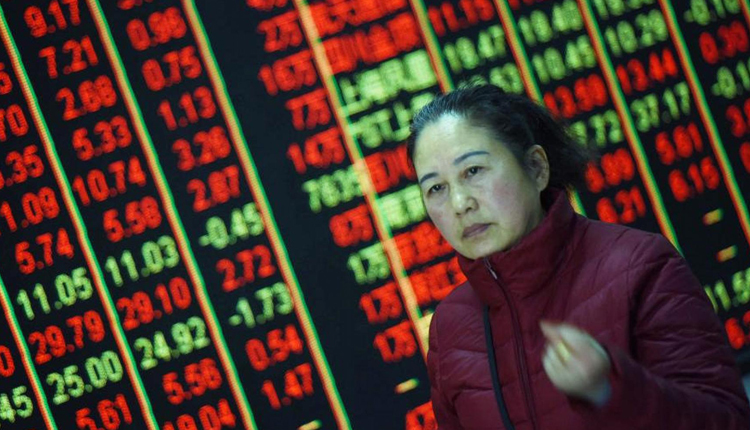Asian markets fell on Thursday afternoon amid fresh trade concerns, with the U.S. announcing it’s set to slap tariffs on European Union goods.
Hong Kong’s Hang Seng index slipped 0.48 percent by the afternoon.
Hong Kong retail sales in August plunged to its lowest on record, according to its government on Wednesday. That comes as the sector has been hit by protracted protests in the city that have lasted for months.
Shares of retailers were mixed in Thursday trade, with Chow Tai Fook Jewellery falling 1.56% and Prada slipping 1.34 percent while Sa Sa International advanced 1.18 percent.
The Nikkei 225 in Japan fell 2.12 percent, with shares of index heavyweights Fast Retailing, Softbank Group, and Fanuc all dropping more than 2 percent each. The Topix index also slipped 2.02 percent.
Over in Australia, the S&P/ASX 200 dropped 2.19 percent as most sectors saw declines.
The heavily-weighted financial subindex fell more than 2 percent, with shares of the country’s so-called Big Four banks seeing declines: Australia and New Zealand Banking Group slipped 2.89 percent, Commonwealth Bank of Australia shed 2.5 percent, Westpac fell 2.38 percent, and National Australia Bank dropped 3.34 percent.
Overall, the MSCI Asia ex-Japan index fell 0.62 percent.Markets in China and South Korea are closed on Thursday for holidays.
Trade fears
Meanwhile, a new battle on the trade front could rattle markets again, as the Office of the U.S. Trade Representative said it will impose tariffs on European Union goods on October 18.
“It is hard not to see that the timing and context of the ruling — in the midst of broad-based US offensive on all trading partners … is tragic; and almost certainly in danger of blowing global trade even more off-course,” Vishnu Varathan, head of economics and strategy at Mizuho Bank, wrote in a note.
“It would appear that the WTO will inadvertently find itself being complicit in blowing global trade off course; further eroding its moral authority (assuming there was any to begin with), and endangering its own relevance,” Varathan said.
That comes on top of the ongoing trade war between Beijing and Washington, with Chinese and U.S. officials scheduled to meet in Washington next week. The tariff fight between the two largest economies has lasted for more than a year with seemingly no end in sight.
Worries have also grown over the prospect of an economic slowdown in the U.S. Manufacturing activity in the U.S. contracted to its worst level in more than a decade, according to a Tuesday report from the Institute for Supply Management (ISM). A September private payrolls report also showed a slowing pace of U.S. hiring.
Overnight stateside, the Dow Jones Industrial Average plunged 494.42 points to close at 26,078.68. The S&P 500 shed 1.8 percent to end its trading day on Wall Street at 2,887.61 while the Nasdaq Composite closed 1.6 percent lower at 7,785.25.
Currencies and oil
The U.S. dollar index, which tracks the greenback against a basket of its peers, was last at 99.046 after declining from levels above 99.3 yesterday.
The Japanese yen traded at 107.13 per dollar after strengthening from levels above 107.5 in the previous session. The Australian dollar changed hands at $0.6716 after bouncing from levels below $0.67 yesterday.
Oil prices edged higher in the morning of Asian trading hours, with international benchmark Brent crude futures up fractionally to $57.74 per barrel. U.S. crude futures also gained 0.34 percent to $52.82 per barrel.
Source: CNBC


